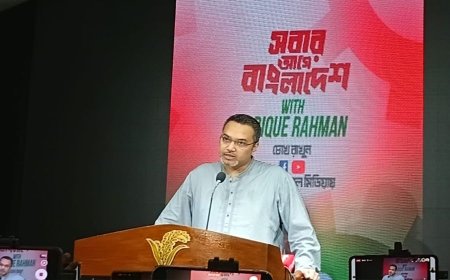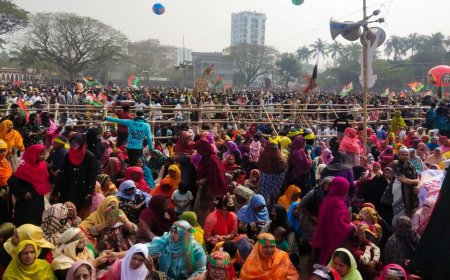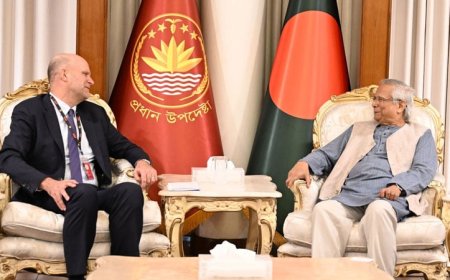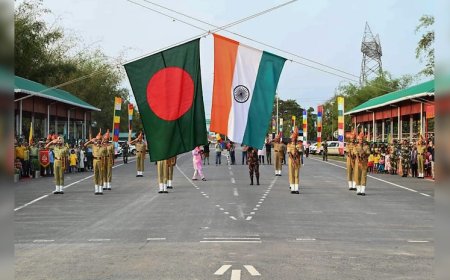Iraqi fighters are heading to Syria to confront rebels, while Hezbollah in Lebanon remains uninvolved, according to sources
Iran's network of allied regional militia groups, supported by Russian air power, has played a crucial role in the success of pro-government forces in defeating rebels in Syria.
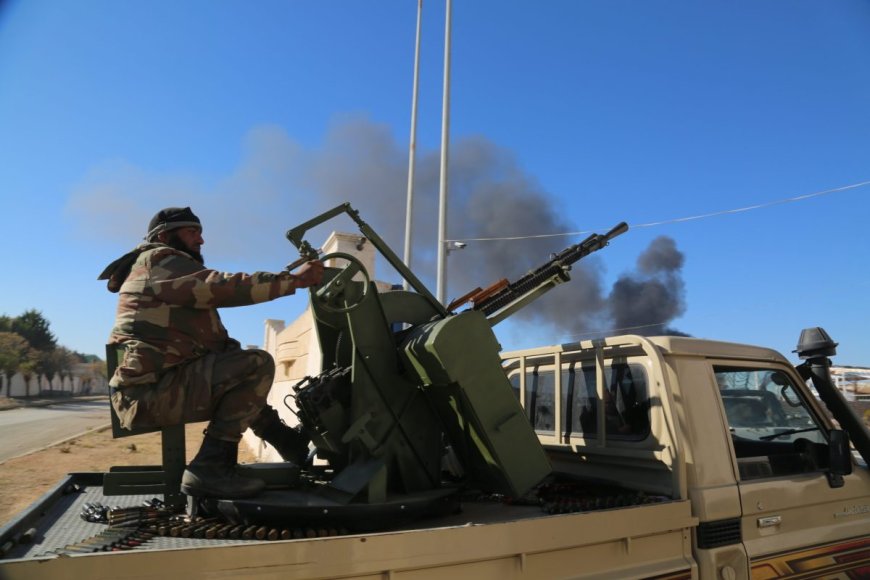
Hundreds of Iraqi fighters backed by Iran crossed into Syria on Monday to assist the government in battling rebels who seized Aleppo last week. However, sources say that Lebanon's Hezbollah does not plan to join them for now.
Iran's network of allied regional militias, supported by Russian air power, has been essential to the success of pro-government forces in overcoming rebels in Syria, who have been fighting against President Bashar al-Assad since 2011.
The alliance now faces a new challenge following the rebels' rapid advance in northwest Syria. With Russia focused on the war in Ukraine and Hezbollah weakened by its recent conflict with Israel, the storming of Aleppo represents a significant victory for anti-Assad forces. Government forces had held full control of Aleppo since 2016, a key turning point in the war that has resulted in hundreds of thousands of deaths.
Hadi al-Bahra, head of Syria’s main opposition group abroad, told Reuters that the rebels' swift capture of Aleppo was possible due to Hezbollah and other Iran-backed groups being distracted by their conflict with Israel.
Preparations for the Aleppo assault had been underway since last year but were delayed by the war in Gaza. Since 2020, Syria’s civil war had largely stalled, with Assad in control of most territory and major cities, while rebels held an enclave in the northwest. Turkish-backed forces controlled parts of the northern border, and US-backed Kurdish forces held areas in the northeast.
Any prolonged escalation in Syria risks further destabilizing the region, already shaken by the conflicts in Gaza and Lebanon, and adding to the displacement of millions of Syrians, as rival regional and global powers back different forces in the country.
Sources confirmed the arrival of additional Iran-backed Iraqi fighters in Syria. Iran's Foreign Minister declared Tehran’s readiness to provide support, with "resistance groups" poised to aid Assad.
At least 300 fighters, primarily from Iraq’s Badr and Nujabaa groups, crossed into Syria on Sunday using a dirt road to avoid official border crossings, according to two Iraqi security sources. They were reportedly sent to defend a Shi'ite shrine. A senior Syrian military official said the fighters crossed in small groups to avoid airstrikes, and described them as fresh reinforcements for the northern front lines.
However, the head of Iraq's Popular Mobilization Forces, which includes Iran-aligned Shi'ite militias, denied that any group under its banner had entered Syria, stating that its operations are confined to Iraq.
Kataib Hezbollah, an Iran-aligned Iraqi group, said it was monitoring the situation in Syria but had not yet decided whether to send fighters.
Hezbollah in Lebanon, which has been a key force in Assad's military alliance, has not been called to intervene. Sources indicated that Hezbollah is not ready to commit forces following its recent intense conflict with Israel, which ended in a ceasefire last week. Some senior Hezbollah officers in Syria were reportedly reassigned to assist in the ground war against Israel, and the group had already pulled back from Syria in mid-October as the Israel conflict escalated.
Arab nations and the United States have seen Hezbollah’s weakening as an opportunity to drive a wedge between Assad and Iran. Discussions have reportedly been held about potentially lifting sanctions on Assad if he reduces his reliance on Tehran. However, the recent rebel gains may force Assad to further rely on Iranian support.
Russia, which entered the conflict in 2015 to tip the balance in Assad’s favor, continues to support him, with Moscow analyzing the situation on the ground. On Sunday, Russia dismissed the general in charge of its forces in Syria.
The Syrian government reported airstrikes by Syrian and Russian forces on rebel-held positions east of Aleppo, while the White Helmets and residents in the area reported strikes on residential areas of Aleppo city and a displaced persons camp in Idlib, which resulted in seven deaths, including five children.
The government is working to secure towns recaptured from rebels along the front line north of Hama. Rebel shelling of Hama killed three people on Monday, according to state television.
The Syrian government also claimed to have killed hundreds of rebel fighters, though this could not be independently verified.
Rebels in Aleppo, Idlib, and Hama provinces include groups backed by Turkey, as well as the Islamist Hayat Tahrir al-Sham, formerly affiliated with al-Qaeda.
A Turkish official confirmed that Turkey did not authorize the rebel offensive and stated that Hayat Tahrir al-Sham acts independently of Turkey.
Turkey and Iran's foreign ministers discussed the situation in Syria on Monday. Turkey’s Foreign Minister Hakan Fidan emphasized that rebel advances could not be attributed to foreign intervention and called for Syrian opposition groups to compromise.
Israel's military spokesperson stated that it would not allow Iran to exploit the Syrian conflict to transfer weapons to Hezbollah.
Turkey’s Anadolu news agency reported that the Turkey-backed Syrian National Army had taken the town of Tel Rifaat from the Kurdish YPG militia and was advancing further into the district.
Rebel sources and an Aleppo resident confirmed that the Kurdish YPG was pulling out of long-held positions in the Sheikh Maqsoud district of Aleppo as part of an agreement with rebel forces.
What's Your Reaction?







